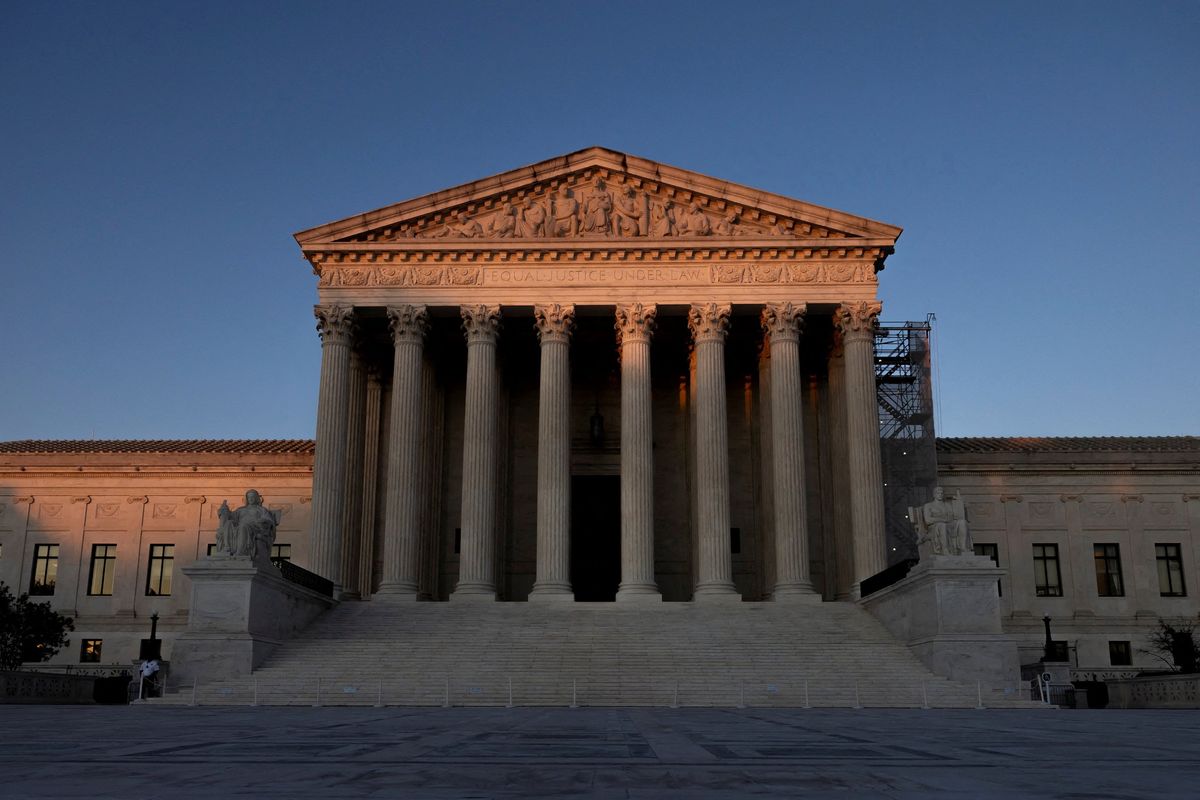
Legal experts are claiming that the U.S. Supreme Court may come to regret its emergency "shadow docket" decision allowing President Donald Trump to fire members of two federal boards -- a move that was considered illegal.
Without hearing the merits of the case, the court issued its ruling Thursday that permitted Trump to fire a member of the National Labor Relations Board and a member of the Merit Systems Protection Board, an agency that ensures federal employment decisions are not influenced by politics.
In a preview of Slate's "Amicus" podcast, legal journalist Mark Joseph Stern exclaimed, "He illegally fired people, and the Supreme Court just rubber-stamped it!"
Stern explained that the 6-3 ruling along conservative and liberal lines will empower Trump "to disregard the law in areas where the Supreme Court doesn’t want him to. And eventually, when the Supreme Court tells him he can’t do something, he might just say: You’ve already given me so much power that I’m going to choose not to respect yours any further."
EXCLUSIVE: Trump accused of new grift that puts Qatari plane in shade
A caveat in the ruling, however, inexplicably made an exception for the chair of the Federal Reserve, banning Trump from firing Jerome Powell.
Stern said the case essentially warned the court, "Watch out, because if you rule against us, you will destroy the Fed by letting Trump seize control of monetary policy," Stern said. "Which could mean irresponsibly slashing interest rates, setting off ruinous inflation, you name it. So, on Thursday, the majority added this random paragraph at the very end of their order saying: 'Don’t worry, what we just did does not apply to the Federal Reserve.'
"So, magically, this decision does not apply to Jerome Powell, who gets to remain chair of the Fed."
Stern said the "makeshift exception does not look, in any recognizable way, like law. The distinctions between the Fed and other independent agencies don’t make any sense: Every agency is 'uniquely structured! The Fed’s Board of Governors is not a 'quasi-private entity'! And every agency has its own 'distinct historical tradition'! Nothing about this sentence shows why the Federal Reserve should have some special constitutional status."
Attorney Dahlia Lithwick claimed that Justice Elena Kagan's dissent essentially warned, "Hey, majority, you are handing a win to somebody who wants to break the law."




